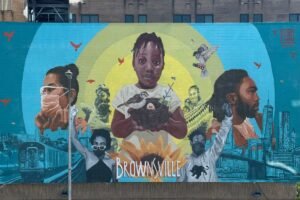May 26, 2015; Inside Toronto
At a recent panel discussion convened by Social Planning Toronto, a housing consultant, a social housing and homeless housing advocate, a real estate developer, and a municipal planner debated how to produce more affordable housing in Toronto and reached one area of agreement: “With the right assurances in place, inclusionary zoning is a concept that could provide much-needed housing to help meet the affordable housing shortage.” The concept is that developments above a certain size should be mandated to make a portion of the units available for rent or sale at below market rates, otherwise known as affordable housing.
The housing consultant, Richard Drdla, said that inclusionary zoning hasn’t been done in Canada but has been successfully implemented in U.S. cities. The private developer, Remo Agostino, indicated some developers might not be happy with the idea of being prevented from marketing every unit they develop for top dollar, but he said that developers would adjust and figure it out, especially in a hot market like Toronto’s. The city’s chief planner, Jennifer Keesmat, joined Drdla in suggesting that inclusionary zoning could have generated thousands of units had it been in existence. However, the advocate, Michael Shapcott of the Wellesley Institute, pointed out that the production of perhaps 1,500 inclusionary affordable housing units a year, which was Drdla’s estimate, pales against the list of 167,531 people waiting for social housing in Toronto.
Sign up for our free newsletters
Subscribe to NPQ's newsletters to have our top stories delivered directly to your inbox.
By signing up, you agree to our privacy policy and terms of use, and to receive messages from NPQ and our partners.
Despite Drdla’s contention that inclusionary zoning is working well in a number of U.S. cities, there are several where it isn’t working at all—because it isn’t allowed:
- The Oregon state legislature has been considering a bill that would overturn a ban on inclusionary zoning there. In an op-ed written for the Oregonian, developer John Russell and activist Diane Linn (from a group called Proud Ground), both members of the Oregon Inclusionary Zoning Coalition, endorsed ending the ban, noting that the combination of public incentives and inclusionary zoning will get “developers…[to] come back to the table as good-faith partners in efforts to restore some balance to local housing markets.”
- Austin, Texas, generally thought of as a community broadly supportive of affordable housing, doesn’t have access to inclusionary zoning, which Mandy DeMayo of HousingWorks Austin calls a tool to make progress in bringing in affordable and even middle-income housing, though others are needed.
- Kirk Caldwell, the mayor of Honolulu, Hawaii, has proposed an inclusionary zoning program, but there has been little progress on his ideas to date.
The concept of inclusionary zoning can work in a variety of different housing markets, with requirements fitted to local market dynamics. Long supported by many nonprofit advocates for its ability to generate new units and preserve an economic mix, inclusionary zoning is an affordable housing development concept that works.
“It’s clear that it was going to take some time to build the political will for (the housing strategy),” said Honolulu’s Scott Morishige of the nonprofit housing group PHOCUSED. “I think the most important thing is that change is underway.” For doing what people generally know to be workable, political will is the essential element, else Toronto, Portland, and Austin find themselves short one very useful affordable housing tool.—Rick Cohen










